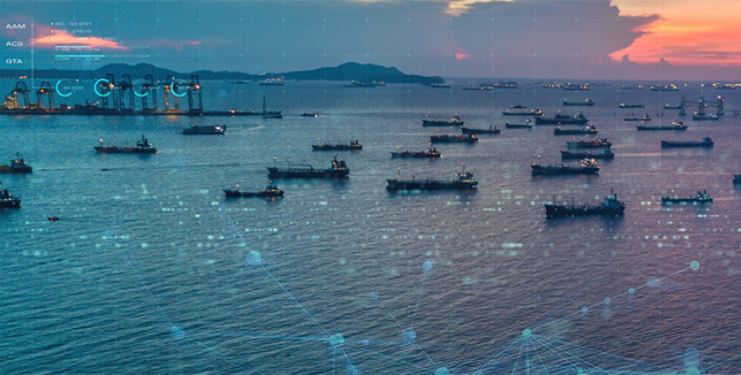
The importance of vessel and fleet management comes down to two components – the crew and vessel software. The use of technology has revolutionized the maritime industry. Various activities, such as navigation and sailing earlier used to revolve around the crew. Today, much of it has shifted to software. This has reduced the burden on the crew and also significantly minimized the likelihood of human error. If a software program has been properly installed and set up, it will operate flawlessly, unlike humans beings who make mistakes.
There are various types of ships sailing in today’s seas. From oil tankers to carriers, cruise ships to military vessels, all these ships have to be in contact to prevent collisions and other hazards. To manage the fleet of any port, maritime firm, or naval force requires great skill. Over the past hundred years, this type of job has changed significantly, for several reaseon.
Communication
More than 90% of traffic globally occurs on the sea. We have been sailing across our seas and oceans for many centuries. Most cargo or freight today is transported by ships. The number of ships currently on the move is significantly greater than it was one hundred or fifty years ago. Keeping track of them all is extremely important.
In the olden days, all communication with a vessel was gone as soon as it left port. We would only know about it when it reached another port safely. Now, because of advance communication techniques and real-time satellite tracking, the seaways are much safer. We have much more data about where ships are, what they are doing, whether they are delayed, etc.
A ship in distress can send out a signal which is picked up quickly by other ships and rescue services. A ship’s captain knows what kind of weather to expect at all times. Real-time monitoring has transformed the world of shipping.
Saving on cargo cost
Before, shipping routes were totally dependent on the skills of captains and the crew. All a mariner had was a compas, maps, and the stars to navigate his way towards a destination. Today, with GPS (global positioning systems), getting lost or going the wrong way is virtually impossible.
Computers on ships today can work out where they are using satellites. They can also plot the best and safest route to a destination. Sea vessels now spend less time getting to their destination, which means they consume less fuel than they used to. This is great for the transportation costs of cargo as well as the environment.
Use of Advanced Technology
Technical reliability and cost-effective purchasing are two important pillars of fleet management. One cannot talk about fleet management without mentioning modern technology. The maintenance of ships and vessels is a very costly affair. Making sure that they are in top condition is crucial. Some of them are huge, and an accident at sea can be costly for the environment, profitability, and human life.
Thanks to state-of-the art vessel software, a fleet manager’s job today is much more comprehensive than it used to be. Thanks to software programs, it is possible to know everything about a ship, parts of a ship, its cargo, sea conditions, etc. Ships’ captains and fleet managers receive continuous data which tells them how seaworthy their vessels are.
Increase in Profits
The maritime industry is a capital intensive one. Thus, an organization has to invest a considerable amount before starting up the business. The protocols, safety rules, and other regulations laid down by various international and national organizations mean that only serious and well-run operators can function profitably and safely.
Modern technology has helped make shipping safer and more environmentally friendly. It has also helped companies improve their profitability.
Video – Logistics
______________________________________________________
Interesting related article: “What is Logistics?“

